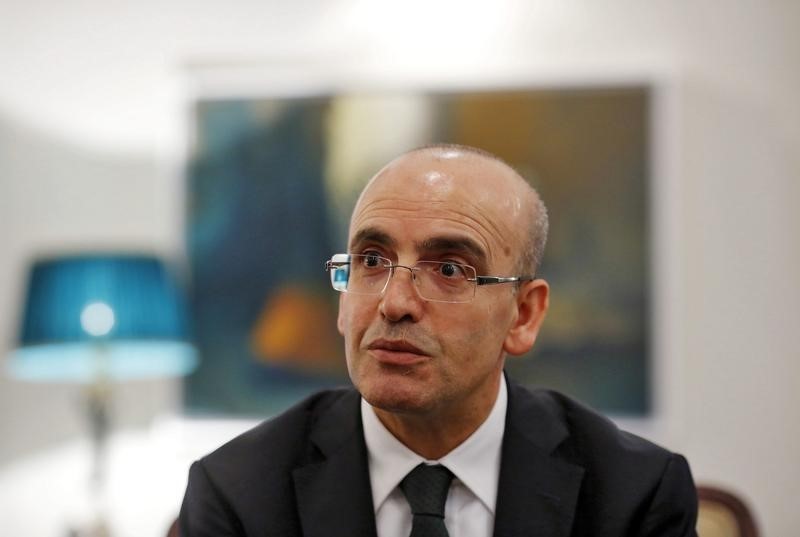Lightning Explains Inflation Targets: "We Want You to Believe in This Program"
The Minister of Treasury and Finance, Mehmet Şimşek, shared the inflation targets for 2024 and 2025. Speaking at the "MÜSİAD 2024 Evaluation and 2025 Expectations" program held in Istanbul, Minister Şimşek noted that the process of disinflation has begun. He announced that they aim to reduce inflation to around 20% in 2023, to the 10% range in 2024, and subsequently to single digits.
While providing information on the steps to be taken in the fight against inflation, Minister Şimşek stated that measures have been implemented to ensure the fair distribution of the tax burden. He also assessed the current state of the Turkish economy, mentioning that despite global adversities, Turkey is in a good position and there are no reasons to be pessimistic.
Regarding global economic developments and interest rate expectations, Minister Şimşek indicated that a decrease in rates could be anticipated from both the European Central Bank and the Fed. He highlighted the short-term positive effects of global funding costs while expressing that long-term borrowing rates reflect uncertainty. He mentioned that an increase in geopolitical tensions could have limited effects on financial markets due to their indifferent reactions.
Minister Şimşek stated that there is a supportive environment for the Turkish economy in the short term and emphasized the rise in fragmentation and protectionism in global trade. He expressed that developments originating from the U.S. are expected to lead to a new period of uncertainty, affecting not only the entire world but Turkey as well, stemming from U.S. trade policies.
Pointing out the fluctuations in the dollar, Minister Şimşek explained how this impacts the Turkish economy. He stated that the use of dollars in imports and the trading of euros in exports makes changes in parity affect Turkey's competitiveness. He cautioned that the initiation of trade wars could negatively impact growth and highlighted China's automotive production capacity and its potential effects.
During periods of low global interest rates, he noted that debt levels are less concerning; however, in an environment where long-term rates remain high, this could induce stress in the markets. Minister Şimşek drew attention to the African market, stating that the debt levels in these markets could impact growth, indicating a need for reassessment.
Minister Şimşek mentioned that a dramatic decrease in Turkey's current account deficit has been achieved, describing this as a positive development. He noted that Turkey's risk premium has decreased, positively reflecting on borrowing rates. By implementing reductions in the credit deposit headline ratio, Turkey has taken steps towards risk reduction, suggesting that if the program continues, credit ratings may further improve.
Emphasizing the importance of maintaining budget discipline, Minister Şimşek stated that measures taken last year allowed for the control of the budget deficit. He indicated that there would be increased scrutiny on large taxpayers to ensure the fair distribution of the tax burden, and emphasized that they will continue to maintain fiscal discipline through measures such as reducing the number of rented vehicles in the public sector.
Minister Şimşek mentioned that ensuring access to housing for low-income citizens remains a priority, noting that rental increases negatively impact inflation. He stressed the importance of the increase in housing supply post-earthquake and announced that energy subsidies will continue with a focus on renewable energy.
Addressing the impact of the global slowdown in demand on economic activity, Minister Şimşek concluded that the overall outlook for the Turkish economy remains positive despite some short-term corrections. He highlighted that exports are among Turkey's top priorities, stating that they are encouraging exports through reductions in rediscount credit costs.
Minister Şimşek stated that various supports are provided through KOSGEB for struggling sectors and that significant support for farmers continues. He emphasized the importance of agricultural production and the assistance provided to small businesses for the Turkish economy and mentioned ongoing work towards achieving the budget targets set for 2025.
In addition to supporting exports and investments, Minister Şimşek underlined their commitment to maintaining budget discipline, concluding that the Turkish economy is in good shape and access to finance will further improve.


